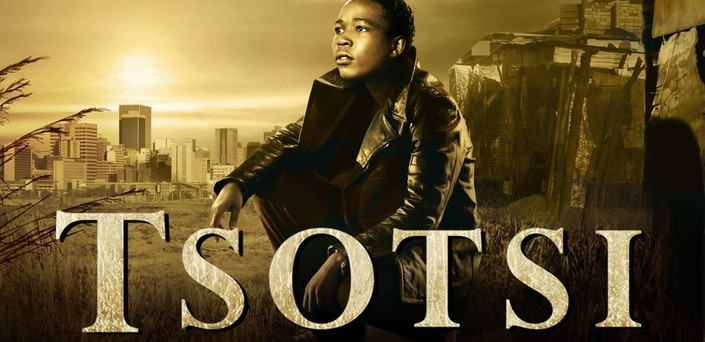
Presley Chweneyagae, A Tribute to South Africa’s Screen Icon and His Cultural Legacy
For many South Africans and cinema-goers around the world, the first introduction to Presley Chweneyagae came in the form of a quiet, intense performance that needed no bravado to leave its mark. As the lead character in Tsotsi, South Africa’s first film to win an Academy Award for Best Foreign Language Film, Chweneyagae brought an incredible depth to a troubled young man navigating the fractured streets of Johannesburg. His portrayal of a hardened gangster softened by an unexpected moral awakening resonated across cultural and geographic lines. The performance was so raw and so intimate that it elevated the film to international acclaim and marked the arrival of a new talent destined to leave a lasting imprint.
Presley was only twenty-one when Tsotsi premiered, but his presence on screen was that of a seasoned veteran. His face, full of restrained fury, grief, and ultimate redemption, came to symbolise not only the pain of apartheid’s lingering scars but also the hope that transformation is possible. It was the kind of performance that rarely comes along, one that carves a permanent place in the cultural memory of a nation.
A Life Rooted in Community and Craft
Presley Chweneyagae was not born into privilege. He was raised in Mafikeng, in the North West province, by a single mother who instilled in him a respect for education and a deep love for storytelling. It was theatre, not cinema, where he first honed his skills. Participating in community productions and stage performances, he developed a foundation of discipline and emotional fluency that would serve him well throughout his career.
His journey from small-town performer to international star could have taken a different turn, but Chweneyagae remained committed to his roots. Even at the height of his fame, he returned to the stage and community workshops, often working with young, aspiring actors. He never saw success as a reason to leave home behind. Instead, he viewed his platform as a tool to uplift others. For Presley, art was not just performance, it was service.
Building a Body of Work that Mattered
Although Tsotsi catapulted him into the global spotlight, Chweneyagae was never one to chase celebrity for its own sake. He was selective with his roles, choosing characters that offered nuance, social context, and emotional complexity. He went on to star in various local and international productions, but it was his work in South African television dramas like The River that reaffirmed his place in the hearts of domestic audiences.
In The River, he played the role of Cobra, an erratic but deeply human character grappling with moral ambiguity, poverty, and family loyalty. The role allowed him to dig into the contradictions of township life, portraying with great authenticity the humour, desperation, and resilience that define so many South African households. It was a performance that mirrored his real-life commitment to telling stories that reflect lived realities, and it reminded audiences that Presley was more than a one-film wonder, he was a craftsman, dedicated to his people and his culture.
 Perhaps Presley’s most enduring contribution lies not in what he did on screen, but in what he gave off it. In recent years, he shifted much of his focus to youth mentorship and arts education. Through community theatre initiatives and youth development programmes, he poured his experience into the next generation of creatives.
Perhaps Presley’s most enduring contribution lies not in what he did on screen, but in what he gave off it. In recent years, he shifted much of his focus to youth mentorship and arts education. Through community theatre initiatives and youth development programmes, he poured his experience into the next generation of creatives.
He believed deeply in the power of storytelling as a vehicle for social change. His workshops were not just acting classes, they were spaces for young people to unpack trauma, build self-esteem, and imagine alternative futures. In a country still grappling with inequality and social dislocation, this work was quietly revolutionary. It was as if he understood that to change the future of the arts, one had to begin at the grassroots.
His commitment to mentorship wasn’t performative. Those who worked with him often describe a generous, patient leader, unafraid to be vulnerable and honest about the challenges of the industry. He did not shy away from discussing his own missteps or the darker periods in his life, including his well-documented legal and personal struggles. For Presley, transparency was part of growth, not only his own, but that of the young people he inspired.
Loss of a National Talent, Legacy of a Cultural Architect
Presley Chweneyagae passed away at the age of 40. The news sent ripples through the film, theatre, and broader creative communities of South Africa. It was a loss that felt both personal and collective. He had, in many ways, become a symbol of artistic integrity and cultural pride, a man who used his platform not for fame but for impact.
In remembering Presley Chweneyagae, we are called to remember not only his roles, but the messages he carried. We are reminded of the value of narratives that emerge from the township, the village, and the fringes of society, stories often ignored, but made powerful through voices like his. We are invited to see acting not as performance for applause, but as embodiment for healing, reflection, and transformation.
South Africa has no shortage of talent, but few artists have matched Presley’s blend of humility, depth, and cultural resonance. In a world increasingly obsessed with celebrity for celebrity’s sake, his quiet resistance to fame for its own sake stands out as a radical choice. He stayed close to the ground, to his community, and to the issues that defined his nation.
His life and career will continue to be studied, celebrated, and remembered. More importantly, his spirit will live on in the classrooms he visited, the theatres he helped build, and the hearts of those who saw themselves reflected in his work. His legacy is not just cinematic, it is civic.
A Lasting Light in South African Storytelling
Presley Chweneyagae’s story is more than the rise of a boy from Mafikeng to the global stage. It is the story of what it means to remain grounded while reaching high, to serve while shining, and to lead without demanding attention. His work challenged stereotypes, deepened national narratives, and opened space for marginalised voices.
Even in his absence, he will continue to teach. His performances remain, his mentorship echoes in the voices of the young, and his impact endures in the very soul of South African arts. If art is the mirror in which a nation sees itself, then Presley helped hold that mirror steady, with grace, with compassion, and with unwavering truth.
As South Africa says goodbye, it also says thank you, to a man who never stopped believing in the power of storytelling, and whose own story will be told for generations to come.




